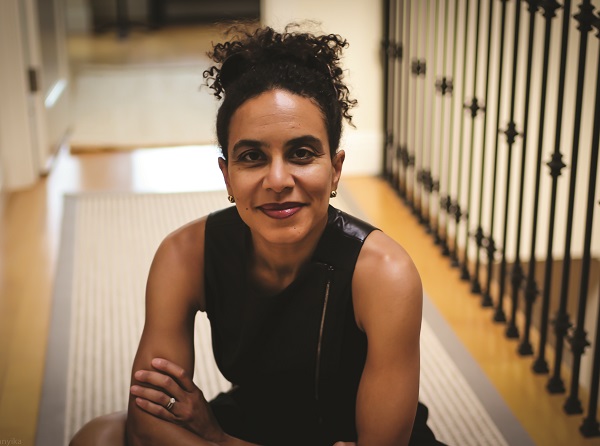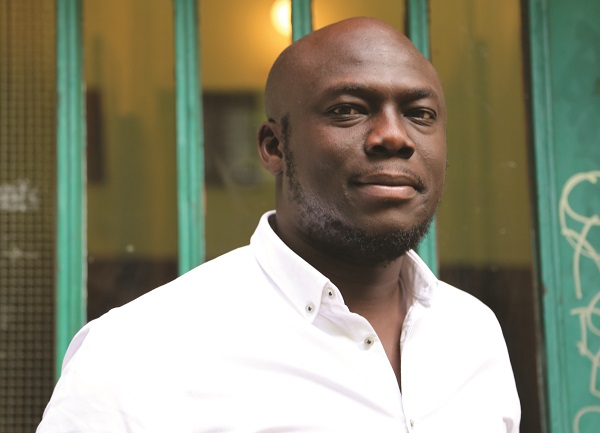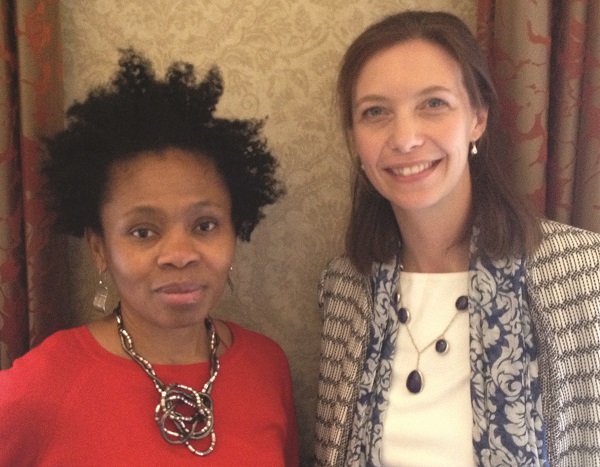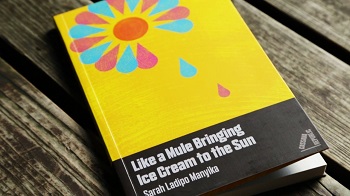PUBLISHED JUNE 2017
By Rosemary Laryea, Producer, "Culture Vultures"
 Rosemary Laryea
Rosemary LaryeaNewly emerging African publishing companies are at last winning international recognition for their inspirational literature.
There is a significant and fast-growing appetite for African-inspired stories as reflected by [the 2016] nominations for major literary prizes such as the Not The Booker Prize, the Goldsmiths Prize, and the winner of the 2016 Man Booker Prize, Paul Beatty.
“Today some of the most exciting writers are of African heritage, who are writing about all kinds of things and in all kinds of genres—memoir, fiction, poetry, crime, romance,” says Tricia Wombell, founder and coordinator of The Black Reading group, a book club that focuses on writers of African or black descent from around the world.
While some of us may know the work of Africa’s literary giants such as Chinua Achebe, Wole Soyinka, Ama Ata Aidoo, or Chimamanda Ngozi Adichie, the goal of one independent publisher,
Cassava Republic Press, is to bring African voices to the mainstream publishing industry. The company seems to be succeeding in its mission.
A few weeks after the April 2016 UK launch of novels by two of its authors, Sarah Ladipo Manyika’s
Like a Mule Bringing Ice Cream to the Sun and Elnathan John’s
Born on a Tuesday made BuzzFeed’s list of “
31 Brilliant Books That You Really Need to Read This Spring 2016.”
Cassava Republic Press was founded more than 10 years ago in Lagos, Nigeria, by Bibi Bakare-Yusuf.
 San Francisco-based author Srah Ladipo Manyika's book Like a Mule Bringing Ice Cream to the Sun has won critical acclaim in the UK.
San Francisco-based author Srah Ladipo Manyika's book Like a Mule Bringing Ice Cream to the Sun has won critical acclaim in the UK. Caine Prize shortlisted nominee Elnathan John, author of Born on a Tuesday, one of many successful titles from Cassava Republic Press.
Caine Prize shortlisted nominee Elnathan John, author of Born on a Tuesday, one of many successful titles from Cassava Republic Press.
Frustration
Bakare-Yusuf, a former research scholar at Obafemi Awolowo University (Ife, Nigeria), took it upon herself to set up the publishing company out of frustration at seeing empty bookshelves whenever she tried to seek out new reading material.
“I learnt about the publishing world from a combination of furious online study, from amazing mentors who are industry stalwarts, such as Margaret Busby, and the
support of the Frankfurt Book Fellows program, which enabled me to visit the Frankfurt Book Fair for the first time as well as spend a week with my peers from around the world learning more about publishing from industry experts,” she recalls.
“The major lessons have, however, been through errors and failure.
“But the learning continues. We named the company Cassava because it is a nutritious and affordable food across the African world—from Benin to Bahia—and we wanted something that would connect Africans across our differences, time, and space.
“In the same way as the starchy vegetable, we wanted our books to be an affordable form of nutrition, albeit food for the mind and soul.”
After 10 successful years of operating in Nigeria, Cassava Republic launched its UK branch [in April 2016], partnering with Emma Shercliff, formerly managing director of Macmillan English Campus and head of export sales at Hodder Education.
“Moving into the UK has been on the cards for over five years,” Bakare-Yusuf explains.
“We spotted an opportunity for a new type of publisher in the UK—not one confined as ever to the margins—but a publisher proudly focusing on writing from Africa entering mainstream conversations among people who love literature and nonfiction.
“London is one of the global centers for publishing—it was therefore inevitable that we would set up shop here.”
Cassava Republic’s authors say they have found the company’s success and its move to the UK liberating.
When San Francisco-based author Sarah Ladipo Manyika was looking for a publisher, she deliberately sought out Cassava Republic.
“The gatekeepers of the literary world remain firmly in the West, so granting world rights to an African publisher is my way of trying to re-address the imbalance,” she says.
 Bibi Bakara-Yusuf, pictured left, founded Cassava Republic Press 10 years ago in Lagos, Nigeria. In this photo, she poses with Emma Shercliff, who is helping to spearhead the press' move to the UK.
Bibi Bakara-Yusuf, pictured left, founded Cassava Republic Press 10 years ago in Lagos, Nigeria. In this photo, she poses with Emma Shercliff, who is helping to spearhead the press' move to the UK.
Prize
Like a Mule Bringing Ice Cream to the Sun is Manyika’s second novel to be published by Cassava and is the first African novel to be shortlisted for the
Goldsmiths Prize 2016, a prize that rewards books that break the mold.

“What I have written is not conventional, not only in its length but also because it’s about a 74-year-old woman named Dr. Morayo Da Silva, her sexuality, and her unlikely group of friends. I explore the themes of connecting with people,” she says.
Caine Prize shortlisted nominee Elnathan John, author of
Born on a Tuesday, another successful title from Cassava Republic Press, also hails the company’s bold move to open a branch in the UK.
“For most independent publishers, the struggle for survival in an industry where even big publishers flounder, is tough,” he says.
“Cassava Republic has made the daring step to move out of what some might call a comfort zone in Nigeria, where it was one of the biggest and most important presses to the UK—one of the publishing capitals of the world.”
John’s debut novel,
Born on a Tuesday, explores the ways in which young men are seduced by religious fundamentalism and violence, and the male sense of self and relationships among young men in Nigeria.
According to John, Cassava Republic provides a fundamental and important platform to develop wider narratives about the continent.
“I wrote my first story for a radio breakfast show in Kaduna, Nigeria, a little over 16 years ago, and since then I have been trying to find better ways to tell stories,” he says.
 Cassava Republic Press prize-winning author Abubakar Adam Ibrahim wrote Seasons of Crimson Blossoms.
Cassava Republic Press prize-winning author Abubakar Adam Ibrahim wrote Seasons of Crimson Blossoms.
Another Cassava Republic Press prize-winning author is Abubakar Adam Ibrahim, who wrote
Seasons of Crimson Blossoms. The book, which chronicles the story of 55-year-old devout Nigerian Muslim mother and grandmother, Binta Zubairu, and the affair she has with a 25-year-old drug dealer and political thug, Hassan Reza, won the
Nigeria Liquids and Natural Gas (NLNG) Nigeria Prize for Literature 2016.
“It was such an exhilarating feeling that my book has won one of the richest literary prizes in the world,” Ibrahim says.
“Of course I got emotional because it hit me immediately after it was announced that I wished my dad, who had died exactly eight months before, had been there.
“Also, being in the running for the prize with my friends, Elnathan John and Chika Unigwe, it was all a bit too much to process at that time. It is still hard to process.”
He continues: “Cassava Republic has a clear vision of what kind of stories they want to publish and they really are passionate about publishing them. I love their zeal and their determination to push boundaries.
“What they have managed to achieve has been unprecedented, and within a short time since setting up in the UK, they have managed to build an incredible list of
titles. They are small, but they are feverish with passion and very rational about the barriers they need to break and how they want to do that.”
According to The Publishers Association, the UK publishing industry is in good health with sales totaling up to £4.4 billion in 2015. The figures also show that the UK’s love affair with the printed book is far from over, as for the first time since the invention of the e-book, overall physical book sales increased while digital sales decreased.
These are encouraging words for Cassava Republic Press, Jacaranda Books, and other independently owned publishers who have the power to transform society through their narratives.
Another independent publishing company that has a clear vision of telling new African stories to a wider audience is
Jacaranda Books, founded in 2012. Jacaranda aims to represent the cultural and ethnic diversity and heritage that can be found in London, with a particular interest in works related to Africa, the Caribbean, and the experiences of those peoples in the Diaspora.
“There has long been an appetite for African, Caribbean, and diaspora writing in the UK, with the first black and minority ethnic (BME)-owned publishing houses dating back to the 1950s,” says Jazzmine Breary, digital and publicity manager at Jacaranda Books.
“The global market and the influence of the internet and social media has given a voice to this largely disregarded audience.
“Couple that with further technological and market-led changes, which have helped publishing industries in African countries like Nigeria, like the rise of Amazon, self-publishing, and a new wave of BME-owned independent publishers like Jacaranda Books. This audience is finally able to find the books they love and are building communities. Non-BAME readers are also benefiting.”
Discover
Breary continues: “No longer limited to what the gatekeepers of the book industry select, they can now connect with readers from across the world and discover a greater choice of literature, further driving demand.
“After all, African and Caribbean stories are human stories that people from all walks of life can relate to.”
Armed with this knowledge and insight, your book is sure to catch the attention of more readers.
Rosemary Laryea is an award-winning television and radio presenter and producer from the UK. She currently produces “Culture Vultures,” an arts and culture daytime TV chat show, profiling creatives in the world of arts and culture.